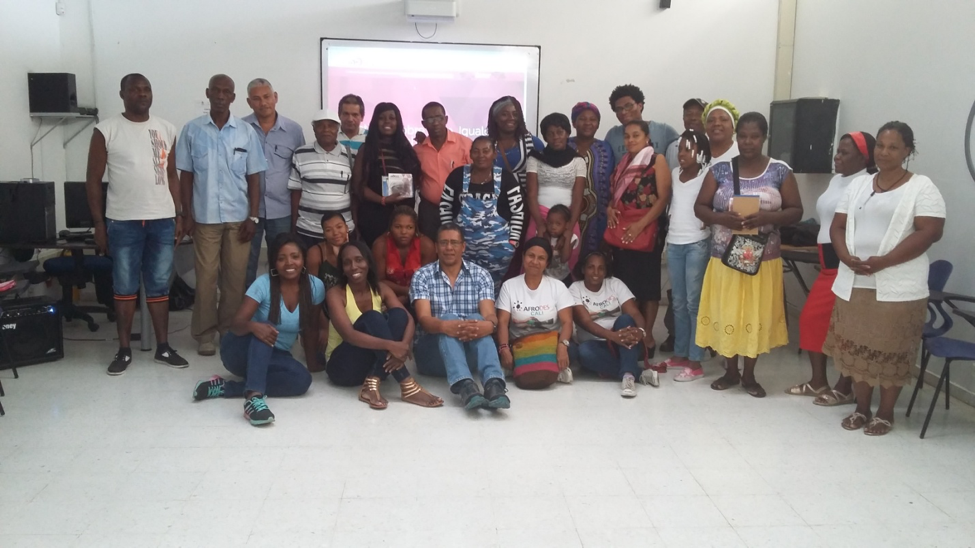“Afro-Colombians in the Post-Agreement”: Workshop with organizations of Afro-Colombian displaced populations from Cali (Colombia)
Bogota, July 25, 2016. On Saturday, July 23, 2016 in Cali, Colombia The Institute on Race, Equality and Human Rights and the National Association of Displaced Afro-Colombians (AFRODES Cali) held […]

Bogota, July 25, 2016. On Saturday, July 23, 2016 in Cali, Colombia The Institute on Race, Equality and Human Rights and the National Association of Displaced Afro-Colombians (AFRODES Cali) held the workshop/discussion Afro-Colombians and the Post-agreement: Mechanisms for the protection of Human Rights. The event was attended by leaders of twenty (20) Afro-Colombian organizations facing forced displacement from this city as a result of the Colombian internal armed conflict. The goal of the event was aimed at promoting a dialogue that would help organizations deepen their knowledge of the implications of the Peace Accords between the Colombian government and the Revolutionary Armed Forces of Colombia—People’s Army (FARC-EP) will have on Afro-Colombian communities. This knowledge is fundamental for the design and implementation of advocacy strategies which organizations must continue to promote in the manner that will guarantee their rights.
During the dialogue, the high levels of uncertainty that these organizations face was made evident, with the implementation of the agreements in place. While they maintain their position of approval and support regarding the end of the armed conflict, which is being negotiated in Havana, they note that the current assessment does not clearly identify the institutional processes necessary that will ultimately restore their fundamental rights. One of the factors contributing to the feeling of uncertainty is the minimal level of specified knowledge they have about the contents of the agreements. They express that the government has not promoted informational activities which would help to adequately explain the Agreements and the implications of its implementation.
Faced with this situation of “disinformation” the Institute’s representative for Colombia, Pedro L. Cortes Ruiz, offered basic, yet essential information about the negotiation process currently underway in Havana between the Colombian government and the FARC-EP; about the contents of the agreements, and the institutional processes that will follow the signing of the final agreement. In the analysis presented, the principal outcome of the exclusion of ethnic groups in the negotiating process was identified: a failure to adopt a differential ethnic approach in the Agreements. This limitation in the agreements, which involved the absence of inadequate recognition on ethnic communities of the differential impact of conflict, carries significant risks to guaranteeing the rights of these communities in the process of implementing the agreements.
In specific cases of displaced Afro-Colombian communities in cities like Cali, the absence of a suitable differential ethnic approach might develop institutional responses in the Agreement that are oblivious to the progress made in recognition of the specific problems these communities face. The Agreements do not provide clarity about the effect that the current rules and policies that guide the care of victims of armed conflict will have on these communities. It must be remembered that the displaced Afro-Colombian population represents at least 30% of the total displaced population in the country, equivalent to more than one million citizens.
Another issue that arose in the dialogue relates to the safety and security of community leaders. Some of them have continued to receive threats, which severely restrict their community and advocacy activities. Security conditions in the Post-Agreement in a city like Cali are also a major concern for them; hence, they coincide with the Institute’s vision of the need to strengthen autonomous conditions for the monitoring of Human Rights during the Post-Agreement.
The Institute on Race, Equality and Human Rights will continue conducting advocacy events in different parts of the country, to help strengthen the capacity of Afro-Colombian organizations in the manner of the protection of their rights during the Post-Agreement.

